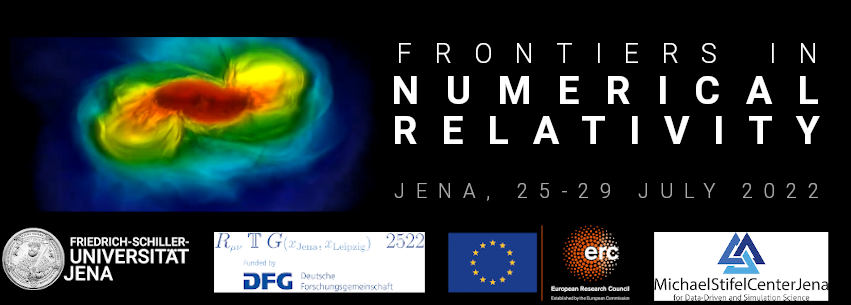Speaker
Description
Detection and parameter inference of gravitational-wave signals relies on the comparison of the incoming detector strain data to waveform templates for the gravitational-wave strain $h(t)$ which ultimately rely on the resolution of Einstein's equations via numerical relativity simulations. These, however, commonly output a quantity known as the Newman-Penrose scalar $\psi_4(t)$, related to the strain by $\psi_4(t)=\mathrm{d}^2h(t) / \mathrm{d}t^2$. Therefore, obtaining strain templates involves a double time-integration that introduces artefacts that need to be eased in a rather manual way. By taking second-order finite differences on the detector data and inferring the corresponding noise distribution, we develop a framework to perform gravitational-wave data analysis directly using $\psi_4(t)$ templates. I will first demonstrate this formalism by recovering numerically simulated signals from head-on collisions of Proca stars injected in Advanced LIGO noise. Next, I will show a re-analysis of GW190521 under the Proca-star merger scenario. Our framework removes the need to obtain the strain from numerical relativity simulations therefore avoiding the associated systematic errors.

